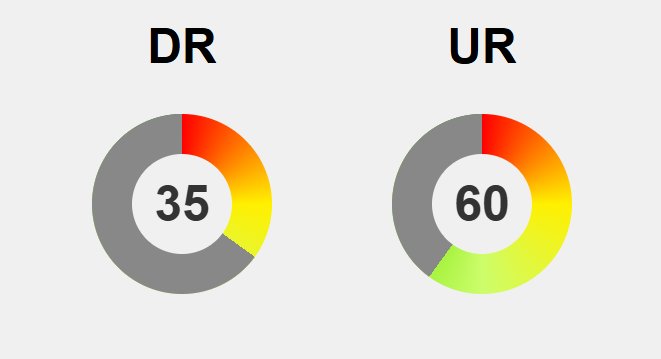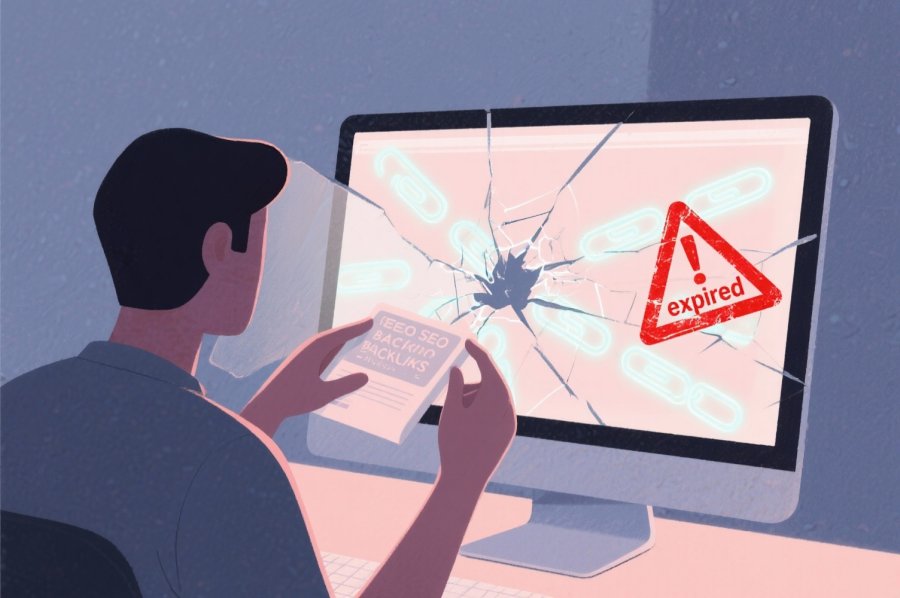Galileo Galilei transformed the face of science with discoveries that challenged centuries-old beliefs and reshaped our understanding of the universe. His groundbreaking telescopic observations—moon’s rugged surface, moons orbiting Jupiter—shattered the idea of celestial perfection and questioned divine orders. Yet, his most daring act was supporting the heliocentric model, directly opposing the Church and ancient philosophy, risking his reputation and freedom. His unwavering pursuit of truth, despite persecution and house arrest, made him a symbol of intellectual resilience and a martyr for progress. But did his defiance also make him a revolutionary figure who paved the way for modern science, or was he a lone voice battling insurmountable dogma? Galileo’s legacy endures as a testament to courage in questioning authority, emphasizing that innovation often demands risking everything to unveil deeper truths about our cosmos.
Galileo’s Bold Impact: Redefining the Cosmos and Challenging Authority
Galileo Galilei’s impact on science is profound and enduring. His work shifted the way we understand the universe, inspiring a move away from centuries-old beliefs rooted in authority and tradition. Through meticulous observation and experimentation, he uncovered a cosmos far more complex and dynamic than previously imagined. His telescopic discoveries—such as the moons orbiting Jupiter and the Moon’s rugged surface—challenged the idea of celestial perfection, fundamentally altering the celestial landscape and paving the way for modern astronomy. These findings weren’t just about new facts; they questioned the very nature of the heavens and the universe’s divine order.
But Galileo’s story isn’t just about groundbreaking discoveries. It’s about daring to challenge powerful institutions that held sway over knowledge for centuries. His support for the heliocentric model, which placed the Sun at the center of the solar system, directly contradicted the long-standing geocentric worldview endorsed by the Church and classical authorities. When he presented evidence that supported this model, he risked censure and exile. His fearless pursuit of truth, despite mounting opposition, turned him into a symbol of intellectual courage and resistance against dogma.
This tension between science and authority set the stage for a dramatic clash. Galileo’s discoveries threatened the divine authority of the Church and the authority of ancient philosophers like Aristotle. His use of the telescope to reveal moons around Jupiter and the Moon’s rough surface undermined the idea of a perfect, unchanging heaven—a core belief that supported the religious worldview. His publications, based on direct evidence rather than tradition, challenged entrenched beliefs and sparked fierce opposition, culminating in his trial and house arrest.
Yet even under threat, Galileo refused to renounce his findings. His unwavering conviction made him a martyr for scientific progress. His courage to stand firm against powerful forces demonstrated that the pursuit of truth often comes with personal sacrifice. His defiance helped shift the focus of science from reliance on ancient texts to observation and evidence, laying the groundwork for the scientific method we rely on today. His story encourages us to question authority and pursue knowledge relentlessly, even when it’s uncomfortable or dangerous.
Galileo’s influence extends beyond his lifetime, shaping the very way we explore the universe. His discoveries proved the cosmos was more intricate than previously thought, emphasizing the importance of evidence over dogma. His relentless challenge to authority transformed science into a discipline driven by curiosity, skepticism, and empirical evidence. Despite facing persecution, he became a symbol of intellectual resilience, inspiring future generations to question, explore, and seek the truth.
His life exemplifies how challenging tradition and authority can lead to revolutionary change. Galileo’s unwavering commitment to discovery, even in the face of personal risk, underscores the essential role of courage in progress. His legacy reminds us that groundbreaking ideas often threaten the status quo but are vital for advancement. To honor his story is to embrace curiosity, skepticism, and resilience—values that continue to propel science and society forward.
Foundations of Genius: How Early Influences Shaped Galileo’s Revolutionary Ideas
Galileo’s early years were shaped by a mix of classical tradition and the burgeoning scientific ideas of the Renaissance. Growing up in Pisa, he was initially exposed to Aristotle’s teachings, which had dominated medieval thought for centuries. These ideas emphasized philosophical reasoning and accepted authority over direct observation, creating a worldview rooted in tradition. Yet, the spirit of the Renaissance was already challenging this reliance on dogma, encouraging curiosity and experimentation. Galileo absorbed this atmosphere of inquiry, which would influence his approach to understanding the natural world.
His education at the University of Pisa introduced him to mathematics and philosophy, but his true passion was exploring nature firsthand. Unlike many of his peers, he sought to see and measure things for himself rather than accept long-standing beliefs. This desire for direct evidence distinguished him early on and laid the groundwork for his revolutionary scientific methods. It was clear that he believed knowledge should be based on observation and experimentation, not just on ancient texts or authority.
Galileo was also inspired by earlier thinkers who questioned the universe’s structure, especially Copernicus. His heliocentric model, which proposed that the Sun, not Earth, was at the center of the solar system, was a radical departure from accepted views. Galileo’s studies of planetary motion and his telescopic observations were directly influenced by Copernican ideas. These early influences pushed him to challenge the long-held geocentric worldview, setting him on a path to revolutionize astronomy.
The works of ancient mathematicians like Archimedes left a deep impression on Galileo. His exploration of mechanics and motion provided a foundation he would build upon throughout his career. Galileo’s experiments with falling objects and pendulums reflected his belief that nature’s laws could be understood through measurement and mathematical analysis. These influences fostered a skeptical mindset, encouraging him to question accepted truths and seek evidence-based explanations.
The shift from reliance on classical texts to direct observation and experimentation was central in shaping Galileo’s scientific identity. His early curiosity was fueled by a desire to understand how things worked, not just to accept what was told by authority. This mindset helped him develop innovative methods that combined mathematics with careful experimentation. His confidence in evidence over dogma would become a defining trait, leading to discoveries that challenged centuries of tradition.
In essence, Galileo’s origins were a blend of old and new ideas. His early exposure to classical philosophy and mathematics, combined with the Renaissance’s emphasis on inquiry, created fertile ground for innovation. These influences ignited his relentless pursuit of understanding the universe through observation and reason. Within this environment, his revolutionary ideas took shape—ideas that would challenge the status quo and forever change the course of science.
Defying Dogma: Galileo’s Courageous Challenge to Religious and Classical Authority
Galileo’s scientific work was more than just a series of discoveries; it was a direct challenge to the authority of both religious and classical institutions that had long shaped humanity’s understanding of the universe. His use of the telescope to observe celestial bodies shattered the idea of a perfect, unchanging heaven—an idea deeply rooted in Aristotelian cosmology and endorsed by the Church. When he revealed moons orbiting Jupiter and the Moon’s rugged, cratered surface, he questioned beliefs that had been accepted for centuries, undermining the notion of divine perfection in the heavens.
Supporting the heliocentric model was perhaps his most daring act of defiance. By insisting that the Sun, not Earth, was at the center of the solar system, Galileo directly contradicted the long-held geocentric worldview upheld by both religious doctrine and classical philosophy. His publications, like *Sidereus Nuncius* and *Dialogue Concerning the Two Chief World Systems*, were based on evidence rather than tradition, shifting the foundation of scientific inquiry from authority to observation. This move threatened the religious view of Earth’s central place in creation and challenged the authority of ancient texts.
Galileo’s willingness to confront these powerful institutions did not go unnoticed. The Church saw his heliocentric advocacy as heresy, and his outspoken stance on scientific independence sparked fierce opposition. His trial in 1633 forced him to recant publicly and placed him under house arrest for the rest of his life. Yet, even in confinement, Galileo refused to abandon his discoveries. His unwavering conviction turned him into a symbol of intellectual courage—someone who prioritized truth over obedience.
Beyond religious conflicts, Galileo challenged the authority of ancient philosophers like Aristotle. His experiments with falling objects and pendulums demonstrated that nature could be understood through direct measurement and mathematical laws rather than philosophical reasoning alone. This approach revolutionized science, replacing reliance on texts with evidence-based inquiry. His methods laid the groundwork for modern scientific practice, emphasizing observation, experimentation, and skepticism over unquestioned dogma.
Galileo’s acts of defiance reshaped societal views on knowledge itself. He proved that truth should be rooted in evidence, not dogma, inspiring future generations to question authority and pursue discovery despite opposition. His courage to stand firm against entrenched power structures demonstrated that progress often requires challenging long-standing beliefs, even at great personal risk.
His refusal to back down in the face of opposition made him a martyr for scientific progress. Despite the personal sacrifices—trial for heresy and years under house arrest—he remained committed to uncovering the truth. His resilience and unwavering belief in empirical evidence helped transform science from a tradition of accepted authority into a discipline driven by curiosity and skepticism.
Galileo’s challenge to tradition was not just about scientific facts; it was a profound assertion of intellectual independence. His work questioned the divine authority of the Church and the authority of ancient philosophy, paving the way for a new era of inquiry. His legacy endures as a testament to the power of courageous questioning, demonstrating that challenging authority can lead to revolutionary change.
His bold stance continues to inspire debates about the relationship between science and authority. For those interested in understanding more about Galileo’s legacy and the importance of scientific independence, exploring this comprehensive overview can provide further insights into his enduring impact on modern science and critical thinking. To learn more, visit Galileo’s Legacy and the Importance of Scientific Independence.
Legacy of Resilience: How Galileo Transformed Science and Inspired Humanity
Galileo’s influence extends far beyond his lifetime, fundamentally shaping how we understand the universe and inspiring generations to challenge the status quo. His meticulous observations—such as discovering moons orbiting Jupiter and the Moon’s rugged surface—broke centuries-old beliefs about celestial perfection. These findings proved that the cosmos was more intricate and dynamic than previously thought, emphasizing the importance of evidence over tradition. His approach set a new standard for science, rooted in direct observation and measurement, and laid the groundwork for the modern scientific method we rely on today.
His fearless stance against authority transformed science from a discipline dominated by accepted texts into a pursuit driven by curiosity and empirical evidence. Galileo demonstrated that knowledge should emerge from direct experience, not just from long-standing authorities, shifting the entire scientific paradigm. His refusal to accept dogma in favor of observation and reasoning diminished the influence of religious and classical authorities, fostering a culture where questioning and skepticism became essential tools for progress. This shift continues to influence scientific inquiry and critical thinking today.
Galileo’s unwavering defiance, despite facing trial for heresy and spending his final years under house arrest, turned him into a symbol of intellectual resilience. His resilience and commitment to truth made him a martyr for scientific independence, inspiring future scientists and thinkers to pursue discovery regardless of opposition. Over time, stories of his bravery and conviction helped cement his legacy as a hero who challenged oppressive power structures, encouraging a mindset of perseverance and integrity.
His work reshaped societal views on knowledge and authority. By prioritizing evidence over dogma, Galileo challenged the idea that truth was fixed and unquestionable. His example fostered a culture that values curiosity, skepticism, and open inquiry—principles at the core of scientific progress. This cultural shift remains vital today, reminding us that questioning entrenched beliefs often leads to breakthroughs and new understanding.
Galileo’s legacy also lies in inspiring a scientific ethos rooted in questioning, exploration, and resilience. His example encourages us to remain skeptical of accepted ideas and to seek understanding through observation and reason. His life demonstrates that genuine progress often requires standing firm against opposition, even at personal risk, and that such courage can catalyze revolutionary change.
Today, Galileo’s story continues to resonate as a testament to the power of individual conviction. His discoveries shattered old paradigms, but his greatest contribution was demonstrating that progress depends on challenging authority and embracing uncertainty. His relentless pursuit of truth reminds us that scientific breakthroughs are often born from daring to question the familiar and pushing beyond the limits of accepted wisdom.
In honoring Galileo’s legacy, we embrace the values he exemplified—curiosity, skepticism, resilience, and courage. His life encourages us to question dogma, to pursue evidence relentlessly, and to stand firm in our pursuit of understanding. These principles remain as relevant today as they were in his time, fueling ongoing innovation and discovery. Galileo’s story is a powerful reminder that genuine progress often begins with the courage to defy convention and seek the deeper truths of our universe.
Reflections on a Trailblazer: The Enduring Power of Courage, Curiosity, and Truth
Galileo’s story reminds us that progress often hinges on the courage to question deeply held beliefs and to challenge authority. His groundbreaking discoveries expanded our understanding of the universe, but they also redefined how science is practiced. By emphasizing careful observation, empirical evidence, and mathematical reasoning, Galileo shifted the focus from accepting ancient texts or dogmatic beliefs to trusting direct experience. This shift laid the foundation for the modern scientific method and continues to influence how we explore the cosmos today.
His unwavering stance in the face of opposition made him a symbol of intellectual resilience. Despite facing trial, exile, and personal sacrifice, Galileo refused to recant his discoveries or abandon the pursuit of truth. His resilience demonstrates that standing firm against entrenched power can be essential for genuine progress. His life shows that challenging authority—whether religious or classical—can unlock new pathways of understanding, even when it comes at great personal cost.
Galileo’s legacy extends beyond the realm of science into society at large. He proved that knowledge rooted in evidence and observation is more reliable than dogma and tradition. His defiance helped diminish the influence of authority figures who sought to suppress new ideas, fostering a culture where skepticism and inquiry are vital. This cultural shift has empowered countless scientists and thinkers to pursue innovation boldly, knowing that progress often requires risking opposition and standing by the evidence.
As a pioneer and martyr for science, Galileo exemplifies the importance of curiosity, skepticism, and resilience. His relentless pursuit of truth, despite formidable obstacles, reminds us that real breakthroughs often come from daring to question the status quo. His courage encourages us to continue questioning assumptions, exploring new ideas, and pushing beyond comfort zones in the quest for understanding.
Today, Galileo’s life continues to resonate as a testament to the power of individual conviction. His discoveries revolutionized astronomy and physics but more importantly, his example shows that challenging entrenched beliefs is vital for societal progress. His story inspires us to be brave, to seek evidence over authority, and to persist in the face of adversity—values that remain as relevant now as they were centuries ago.
Honoring Galileo means embracing the spirit of inquiry and the courage to defy convention. His legacy teaches that meaningful progress demands resilience and the willingness to stand alone if necessary. By embodying these principles, we carry forward his revolutionary spirit, ensuring that the pursuit of truth continues to drive humanity’s ongoing quest to understand the universe.






